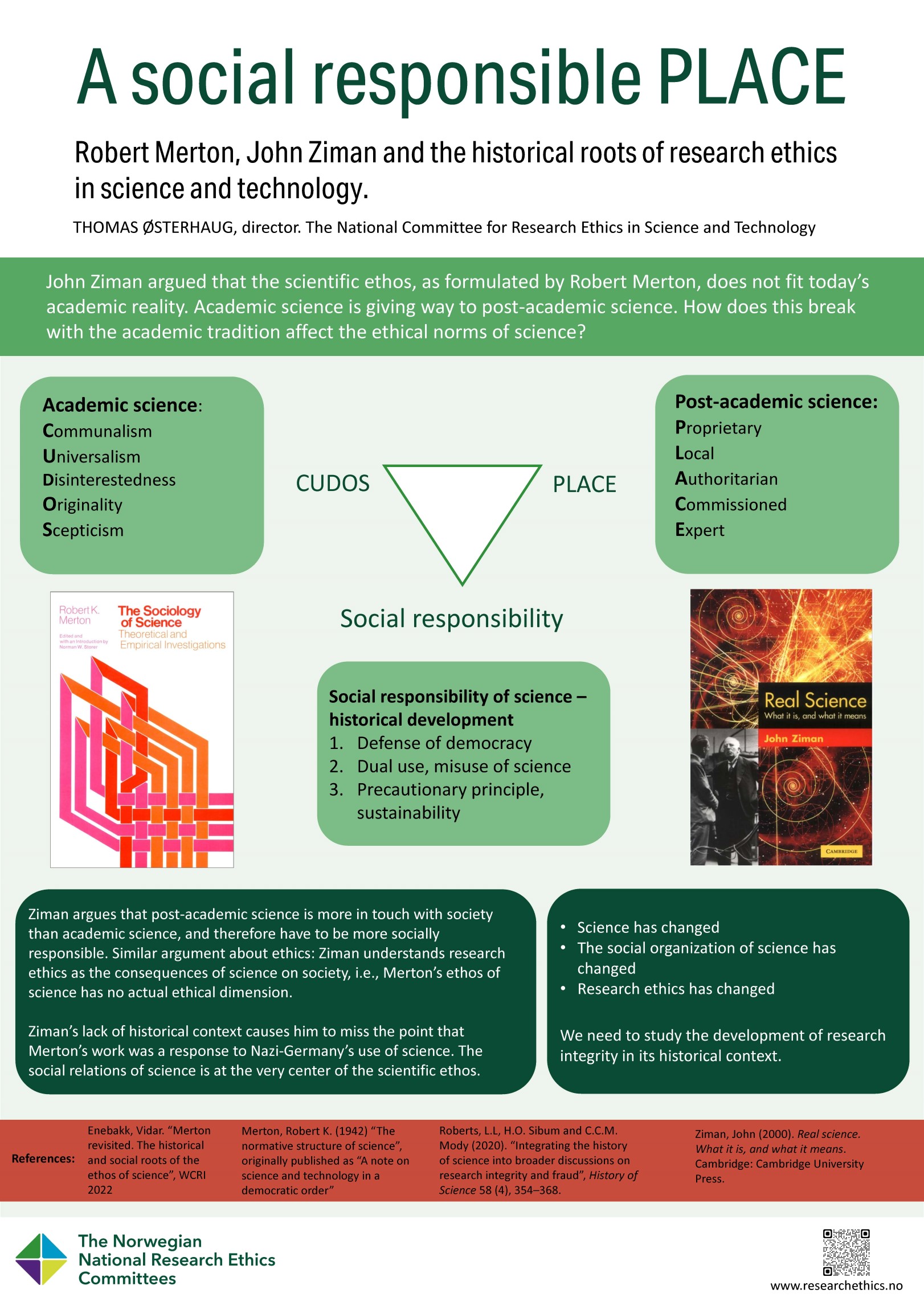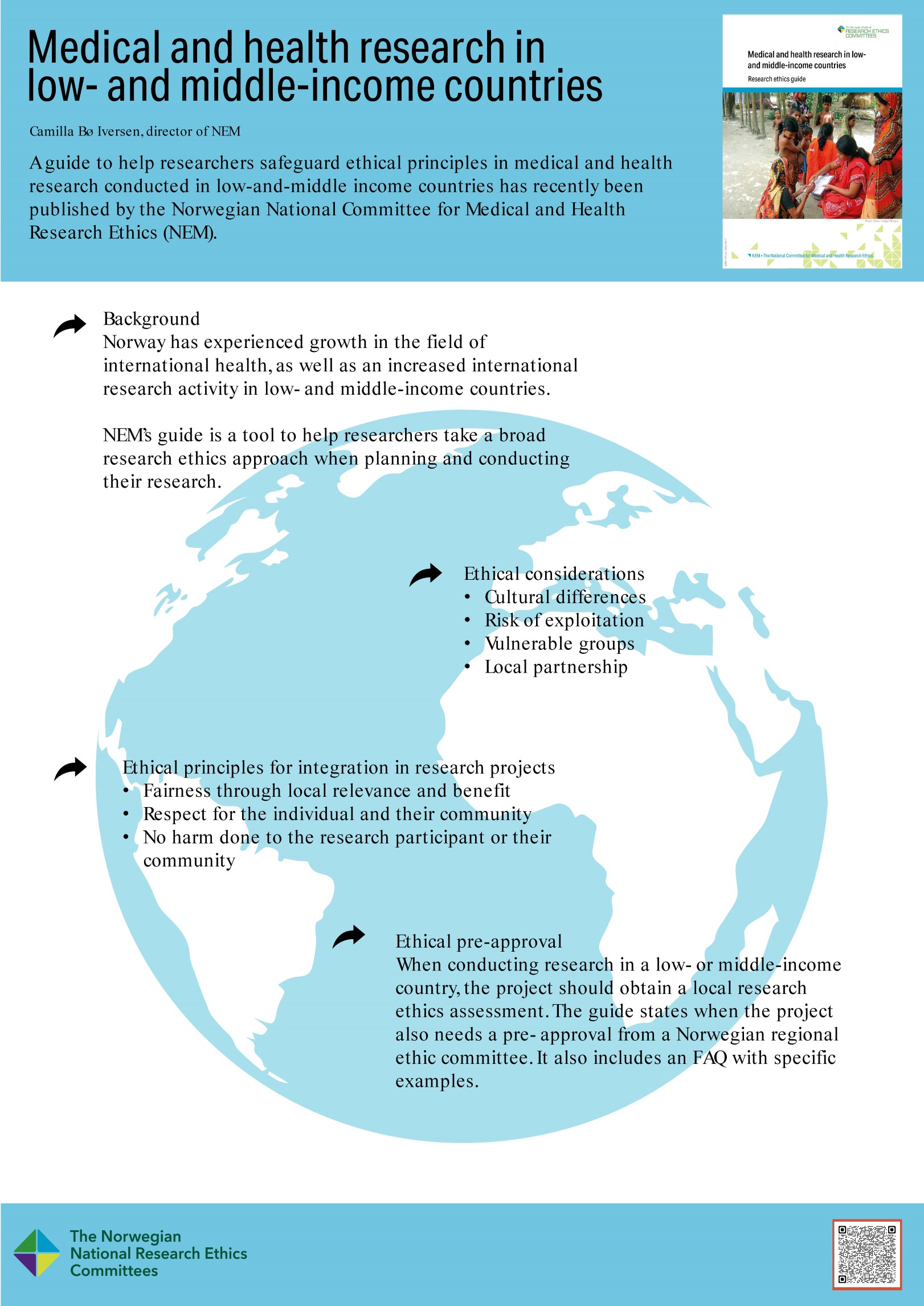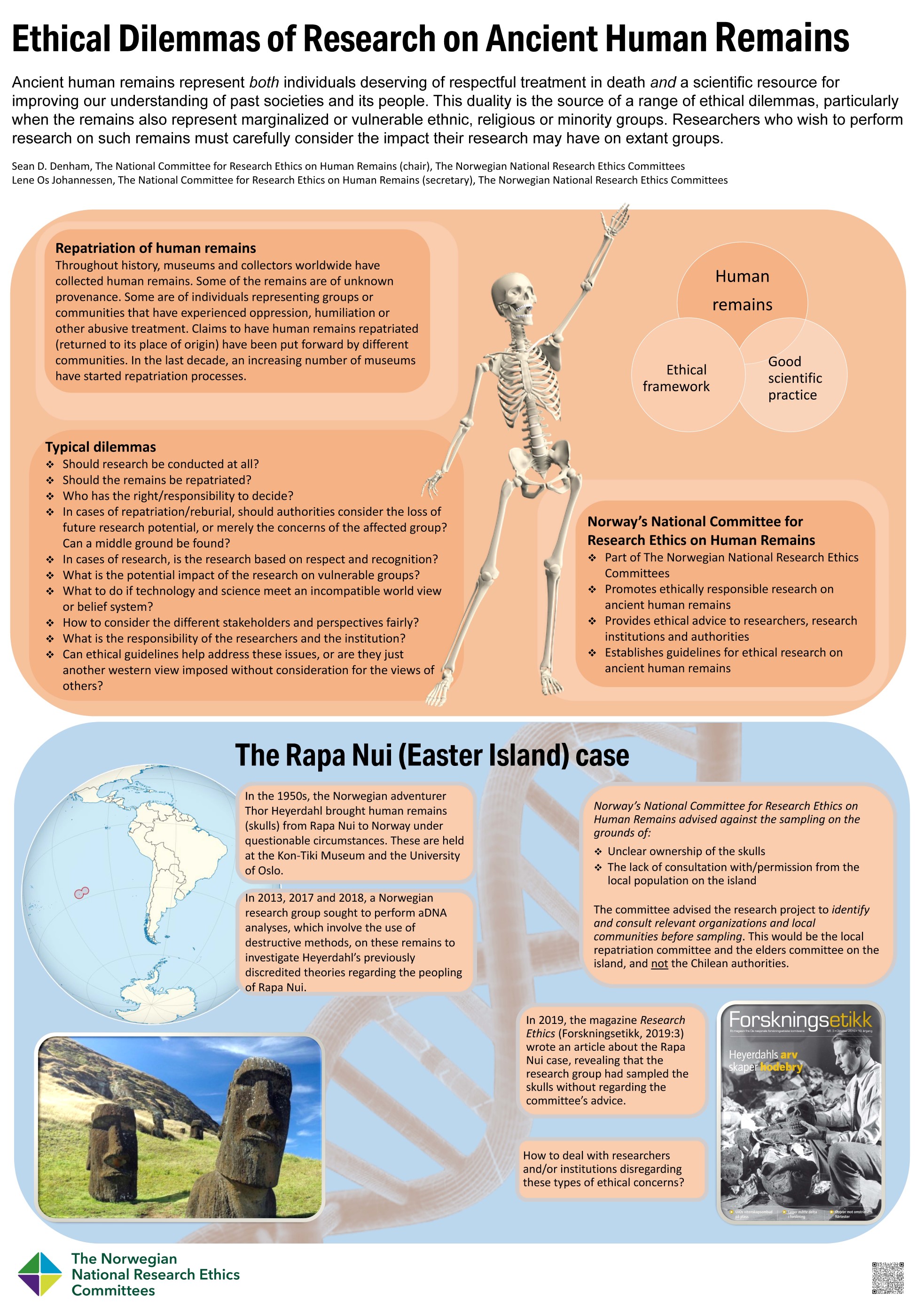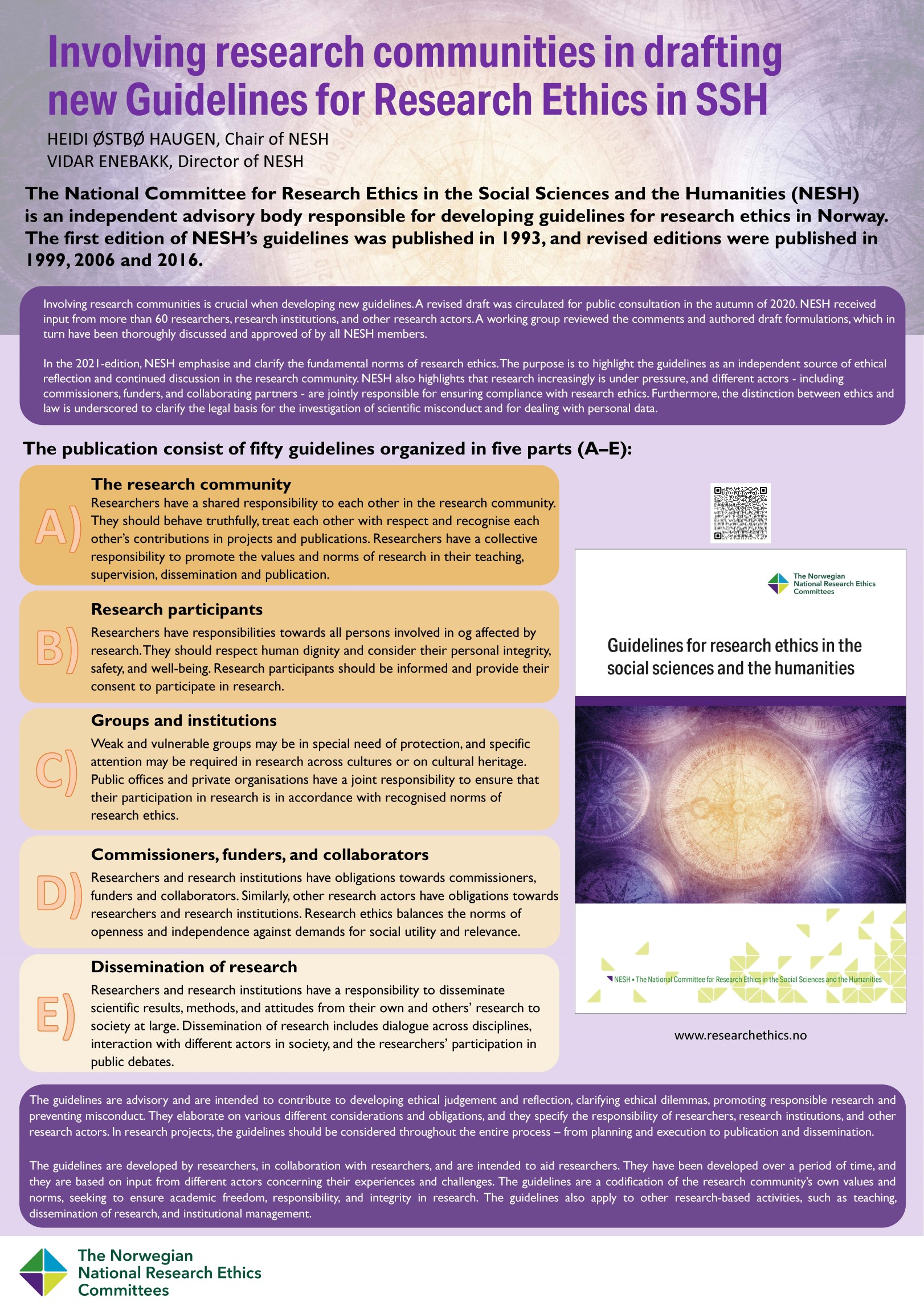See our WCRI posters
Four posters with varied topics were presented by our secretariat and committee-members at the world conference on research integrity (WCRI).

Download pdf: Poster WCRI 2022 - Thomas Østerhaug
A social responsible PLACE
Thomas Østerhaug, director of The National Committee for Research Ethics in Science and Technology (NENT), presented this poster on Robert Merton, John Ziman and the historical roots of research ethics in science and technology.
«John Ziman argued that the scientific ethos, as formulated by Robert Merton, does not fit today’s academic reality. Academic science is giving way to post-academic science. How does this break with the academic tradition affect the ethical norms of science?»
Østerhaug argues that «Ziman’s lack of historical context causes him to miss the point that Merton’s work was a response to Nazi-Germany’s use of science».
Medical and health research in low-and middle-income countries
NEM-director Camilla Bø Iversen presented this guide, «developed to help researchers safeguard ethical principles in medical and health research conducted in low-and-middle income countries». The guide was publised by the Norwegian National Committee for Medical and Health Research Ethics (NEM) in 2021.
The goal of the guide is to help researchers take a broad research ethics approach when planning and conducting their research. It also gived practical advice on when and where to seek an ethics assessment or pre-approval for these projects.
Ethical Dilemmas of Research on Ancient Human Remains
This poster was presented by Lene Os Johannessen, director of The National Committee for Research Ethics on Human Remains (SKJ).
«Ancient human remains represent both individuals deserving of respectful treatment in death and a scientific resource for improving our understanding of past societies and its people. This duality is the source of a range of ethical dilemmas, particularly when the remains also represent marginalized or vulnerable ethnic, religious or minority groups. Researchers who wish to perform research on such remains must carefully consider the impact their research may have on extant groups.»
To exeplify, the poster also presents the Rapa Nui (Easter Island) case, concerning research on human remains brought to Norway under questionable circumstances in the 1950s.
Involving research communities in drafting new Guidelines for Research Ethics in SSH
«The National Committee for Research Ethics in the Social Sciences and the Humanities (NESH) is an independent advisory body responsible for developing guidelines for research ethics in Norway. The first edition of NESH’s guidelines was published in 1993, and revised editions werepublished in 1999, 2006 and 2016.»
I 2021 a new edition was published and NESH-director Vidar Enebakk presented this work in his WCRI poster.


